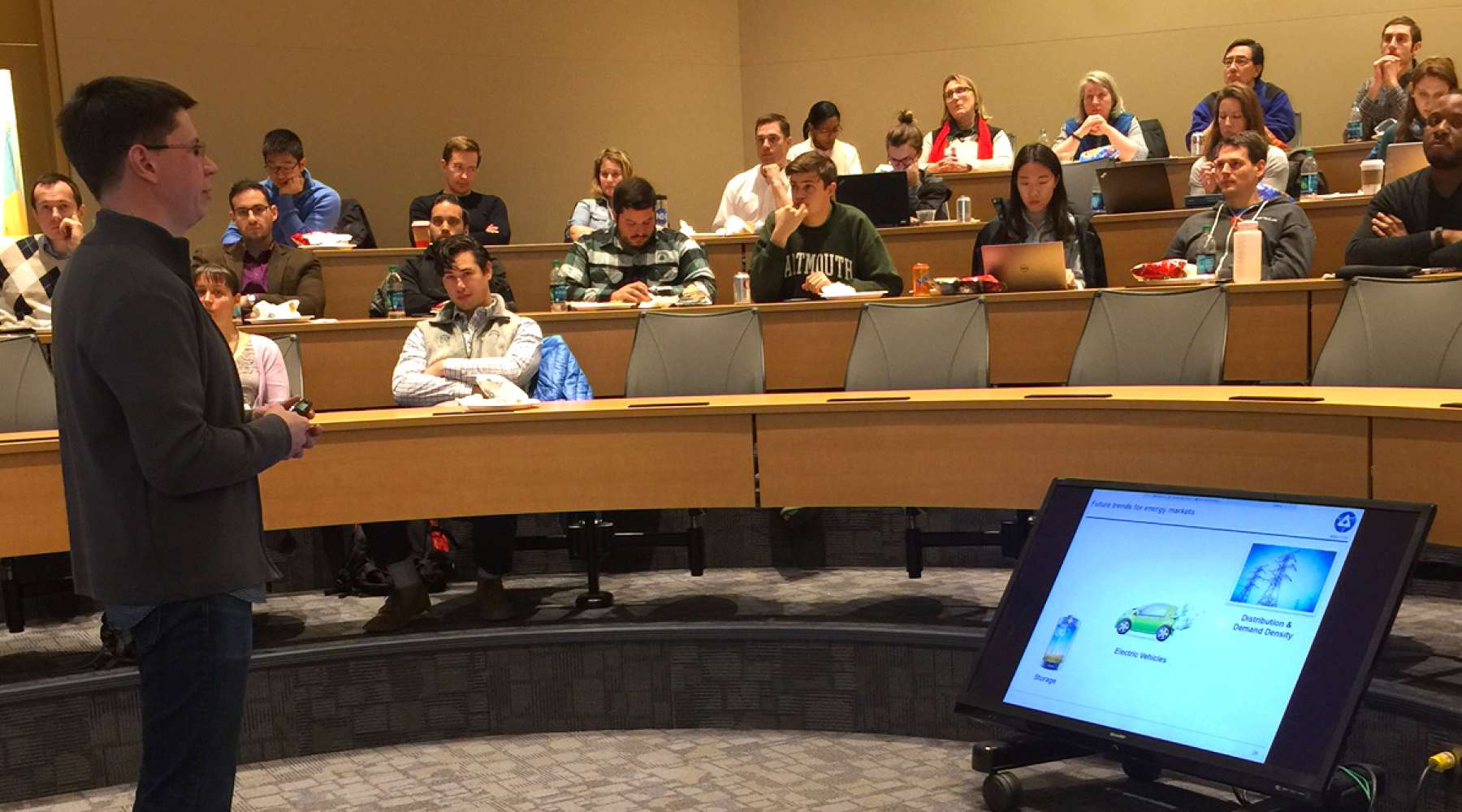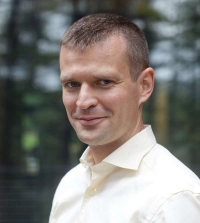
By Andy Ladygin T'17
 Andy is a second-year student at Tuck, where he is a Revers Center for Energy student fellow. Prior to Tuck, he worked in investment management in Russia, focusing on energy equities and commodities. Prior to that, he was at Transaction Services Group at KPMG, working on financial due diligence and merger integration projects in oil and gas sector. Over the summer, Andy worked in equity research at Rainin Group, a family office in New York. Andy is also co-chair of Investment Club, Tuck Asset Management fund, and a visiting executive host fellow. Andy holds a BA in Finance & Credit with distinction from Finance University under the Government of the Russian Federation.
Andy is a second-year student at Tuck, where he is a Revers Center for Energy student fellow. Prior to Tuck, he worked in investment management in Russia, focusing on energy equities and commodities. Prior to that, he was at Transaction Services Group at KPMG, working on financial due diligence and merger integration projects in oil and gas sector. Over the summer, Andy worked in equity research at Rainin Group, a family office in New York. Andy is also co-chair of Investment Club, Tuck Asset Management fund, and a visiting executive host fellow. Andy holds a BA in Finance & Credit with distinction from Finance University under the Government of the Russian Federation.
On January 17, Sergei Petrov T’12, head of strategy at the Russian National Nuclear Corporation Rosatom, visited Tuck to discuss what's next in the energy industry.
Going into Sergei’s talk, I had a bit of an understanding of the nuclear power industry. Just a month ago, I spent my fall break evaluating uranium mining companies for a hedge fund. Safety concerns, widespread public outcry, nascent technology, construction delays, budget overruns, long lead times, enormous capital outlays, ageing fleets, and regulatory pressures—these are the challenges that pop up into my head when I think about nuclear today.
In Tuck's Barclays classroom that day, I naturally expected Sergei to talk about the benefits of nuclear energy—non-intermittency, low cost, large scale, small footprint, and technological advances—and about the importance of it in reaching Paris Agreement goals. To my surprise, Sergei’s talk was instead focused on how wind, solar, and battery technologies are moving the world into the fourth industrial revolution.
Sergei’s point of view was inspiring and invigorating. With a few simple charts, he showed how much experts have underestimated the magnitude of changes taking place in the world of energy—proliferation of solar and wind power keeps beating even the most optimistic forecasts. According to Sergei, this phenomenon has happened with game-changing technologies in the past and is happening again today.
Here are a few points I took home from Sergei’s presentation:
It was remarkable to hear that executives at Rosatom fully realize and embrace the potential of clean energy and have a more optimistic view on it than many I have seen. Remember that Russia is a country rich with fossil fuel energy. This really gives me hope that the world might be moving in the right direction and that together we will reach a point in which energy is universally abundant, green, and safe for our planet.
The Revers Center for Energy inspires and shapes tomorrow's leaders in energy while engaging today's energy community. It aspires to establish Tuck as the preeminent business school for learning practical leadership in the energy industry.